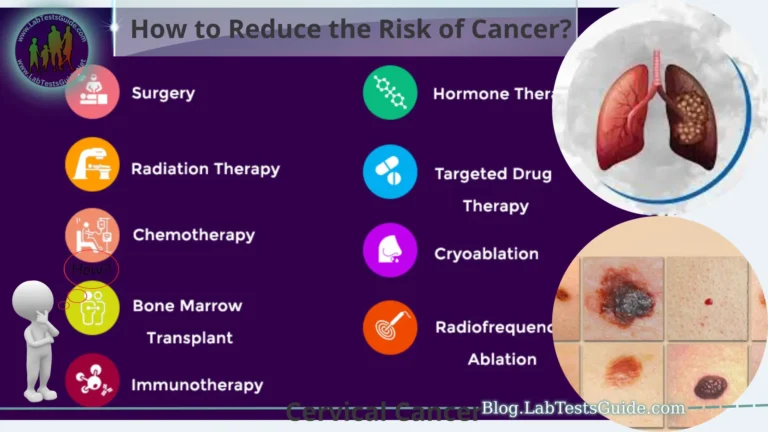Yeast infections, also known as candidiasis, are common fungal infections that affect many individuals worldwide. They occur when there is an overgrowth of the fungus Candida, most commonly Candida albicans, in various parts of the body, such as the mouth, vagina, skin folds, and nail beds. While yeast infections are generally not considered serious, they can cause discomfort, irritation, and inconvenience, making it essential to understand how to prevent and manage them effectively.

In this guide, we will delve into the causes of yeast infections and explore various preventive measures to reduce the risk of their occurrence. We will discuss the importance of maintaining good hygiene practices, wearing breathable clothing, and avoiding certain habits that may contribute to yeast overgrowth. Additionally, we will cover the role of diet and lifestyle choices in preventing yeast infections, including the consumption of probiotics, maintaining a low-sugar diet, and staying adequately hydrated. Moreover, we will explore natural remedies and home treatments that may offer relief for mild cases.
What is a Yeast Infection?
- A yeast infection, also known as candidiasis, is a common fungal infection caused by an overgrowth of the Candida fungus, most commonly Candida albicans.
- It can affect various parts of the body, including the mouth (oral thrush), vagina (vaginal yeast infection), skin folds (intertrigo), nail beds, and other moist areas.
- Yeast infections are not limited to a particular gender and can affect both men and women, though they are more common in women.
- The overgrowth of yeast occurs when the balance of naturally occurring microorganisms in the body is disrupted, often due to factors such as weakened immune systems, hormonal changes, or the use of antibiotics.
- Symptoms of a yeast infection may vary depending on the affected area but commonly include itching, redness, swelling, and discomfort.
- In vaginal yeast infections, symptoms may also include abnormal vaginal discharge and pain during urination or sexual intercourse.
- Yeast infections are generally not considered serious medical conditions but can cause significant discomfort and inconvenience if left untreated.
- Proper hygiene, lifestyle choices, and preventive measures can help reduce the risk of developing yeast infections.
- For more persistent or severe cases, medical treatment and antifungal medications may be necessary to manage the infection effectively.
How to Prevent and Manage Yeast Infections:
Maintain Good Hygiene:
- Regularly wash and keep the affected areas clean and dry.
- Use mild, unscented soap and avoid harsh, irritating products.
Wear Breathable Clothing:
Choose cotton underwear and breathable fabrics to prevent moisture buildup. Avoid tight-fitting clothes that can trap moisture and create a favorable environment for yeast growth.
- Avoid Douching: Douching disrupts the natural balance of bacteria and yeast in the vagina, increasing the risk of infections.
- Use Condoms and Practice Safe Sex: Condom use can help reduce the transmission of yeast infections during sexual activity.
Be Cautious with Antibiotics:
- Antibiotics can disrupt the balance of natural microorganisms in the body, increasing the risk of yeast overgrowth.
- If prescribed antibiotics, discuss with your doctor about preventive measures.
Manage Blood Sugar Levels:
- High blood sugar levels can contribute to yeast growth, especially in individuals with diabetes.
- Properly manage diabetes through medication, diet, and regular monitoring.
Diet and Lifestyle:
- Incorporate probiotic-rich foods like yogurt, kefir, sauerkraut, and kimchi into your diet. Probiotics promote a healthy balance of gut bacteria, which can help prevent yeast overgrowth.
- Choose plain, unsweetened yogurt with live cultures to maximize the beneficial effects.
Low Sugar Diet:
- Limit your intake of sugar and refined carbohydrates. Yeast thrives on sugar, and a high-sugar diet can contribute to yeast overgrowth.
- Read food labels carefully and be aware of hidden sugars in processed foods and drinks.
Hydration:
- Drink an adequate amount of water throughout the day to support overall health and help flush out toxins from your body.
- Staying hydrated can aid in maintaining a balanced internal environment.
Avoid Irritants:
- Be cautious with the use of scented or irritating products around the genital area, such as scented tampons, pads, bubble baths, and sprays.
- Opt for unscented and hypoallergenic products to reduce irritation and the risk of yeast infections.
Proper Vaginal Care:
- Avoid using harsh soaps or douches in the vaginal area, as they can disrupt the natural pH and microflora balance.
- Use warm water and a mild, unscented soap for cleansing, and always pat the area dry after washing.
Cotton Underwear:
Choose breathable underwear made of cotton to allow proper air circulation and reduce moisture buildup. Avoid synthetic materials that can trap moisture, creating a favorable environment for yeast growth.
- Loose-Fitting Clothing: Wear loose-fitting clothes to avoid excess heat and moisture retention, especially in areas prone to yeast infections, such as the genital region or skin folds.
Practice Safe Sex:
- Use condoms during sexual activity to reduce the risk of transmitting yeast infections between partners.
- After intercourse, urinate and clean the genital area to minimize the chances of infection.
Manage Stress:
- Chronic stress can weaken the immune system, making the body more susceptible to infections, including yeast infections.
- Practice stress-reduction techniques such as meditation, yoga, deep breathing exercises, or engaging in hobbies you enjoy.
Maintain a Healthy Weight:
- Being overweight or obese can increase the risk of yeast infections, particularly in skin folds and the genital area.
- Adopt a balanced diet and regular exercise routine to achieve and maintain a healthy weight.
Diet and Lifestyle:
Probiotics and Yogurt:
- Incorporate probiotic-rich foods like yogurt, kefir, sauerkraut, and kimchi into your diet. Probiotics promote a healthy balance of gut bacteria, which can help prevent yeast overgrowth.
- Choose plain, unsweetened yogurt with live cultures to maximize the beneficial effects.
Low Sugar Diet:
- Limit your intake of sugar and refined carbohydrates. Yeast thrives on sugar, and a high-sugar diet can contribute to yeast overgrowth.
- Read food labels carefully and be aware of hidden sugars in processed foods and drinks.
Hydration:
- Drink an adequate amount of water throughout the day to support overall health and help flush out toxins from your body.
- Staying hydrated can aid in maintaining a balanced internal environment.
Avoid Irritants:
- Be cautious with the use of scented or irritating products around the genital area, such as scented tampons, pads, bubble baths, and sprays.
- Opt for unscented and hypoallergenic products to reduce irritation and the risk of yeast infections.
Proper Vaginal Care:
- Avoid using harsh soaps or douches in the vaginal area, as they can disrupt the natural pH and microflora balance.
- Use warm water and a mild, unscented soap for cleansing, and always pat the area dry after washing.
Cotton Underwear:
Choose breathable underwear made of cotton to allow proper air circulation and reduce moisture buildup. Avoid synthetic materials that can trap moisture, creating a favorable environment for yeast growth.
- Loose-Fitting Clothing: Wear loose-fitting clothes to avoid excess heat and moisture retention, especially in areas prone to yeast infections, such as the genital region or skin folds.
Practice Safe Sex:
- Use condoms during sexual activity to reduce the risk of transmitting yeast infections between partners.
- After intercourse, urinate and clean the genital area to minimize the chances of infection.
Manage Stress:
- Chronic stress can weaken the immune system, making the body more susceptible to infections, including yeast infections.
- Practice stress-reduction techniques such as meditation, yoga, deep breathing exercises, or engaging in hobbies you enjoy.
Maintain a Healthy Weight:
- Being overweight or obese can increase the risk of yeast infections, particularly in skin folds and the genital area.
- Adopt a balanced diet and regular exercise routine to achieve and maintain a healthy weight.
Natural Remedies and Home Treatments:
Tea Tree Oil:
- Diluted tea tree oil can be applied topically to the affected areas for its antifungal properties.
- Mix a few drops of tea tree oil with a carrier oil like coconut oil and apply it to the skin or affected areas.
Garlic:
- Garlic contains natural antifungal compounds that may help combat yeast infections.
- Include raw garlic in your diet or crush a few garlic cloves and apply the paste to the affected area.
Coconut Oil:
- Coconut oil has antifungal properties and can soothe itching and irritation.
- Apply organic, unrefined coconut oil to the affected areas for relief.
Boric Acid Suppositories:
- Some studies suggest that boric acid suppositories can be effective for recurrent yeast infections, but it should be used under medical supervision.
- Consult a healthcare professional for the correct dosage and usage.
Probiotics:
- Consume foods rich in probiotics or take probiotic supplements to promote a healthy balance of gut bacteria and combat yeast overgrowth.
- Look for strains such as Lactobacillus acidophilus and Lactobacillus rhamnosus.
Oregano Oil:
- Oregano oil contains antifungal properties that may help fight yeast infections.
- Dilute oregano oil with a carrier oil and apply it to the affected area.
Cranberry Juice:
Unsweetened cranberry juice may help prevent urinary tract infections, which can sometimes trigger yeast infections. Drink pure cranberry juice without added sugars.
- Apple Cider Vinegar: Add a cup of apple cider vinegar to a warm bath and soak in it for 15-20 minutes to relieve itching and discomfort.
- Yoghurt: Apply plain, unsweetened yogurt to the affected area for its probiotic properties and soothing effects.
- Calendula: Calendula ointment or cream may help reduce inflammation and soothe irritated skin.
- Aloe Vera: Aloe vera gel can be applied to the affected area to soothe itching and promote healing.
- Avoid Triggers: Identify and avoid potential triggers that may lead to yeast infections, such as certain foods, excessive moisture, or irritants.
Over-the-Counter (OTC) Treatments:
Antifungal Creams and Ointments:
- OTC antifungal creams and ointments, such as clotrimazole, miconazole, or terbinafine, are readily available for treating mild yeast infections.
- Follow the instructions on the product label for proper application and duration of use.
Vaginal Suppositories:
- OTC antifungal suppositories are specifically designed for treating vaginal yeast infections.
- These suppositories usually contain clotrimazole or miconazole and are inserted into the vagina using an applicator.
Antifungal Medications:
Oral antifungal medications, like fluconazole, are available without a prescription to treat yeast infections. These medications are taken orally as a single dose or as directed by a healthcare professional.
- Combination Packs: Some OTC products come in combination packs, including both external creams and internal suppositories, for comprehensive treatment.
- External Powders and Sprays: Antifungal powders and sprays can help alleviate symptoms and keep the affected area dry, especially for yeast infections in skin folds.
- Medicated Wipes: Medicated wipes with antifungal properties can be used for external cleansing and soothing of affected areas.
Home Testing Kits:
Some OTC home testing kits are available to help diagnose vaginal yeast infections. These kits detect vaginal pH or test for the presence of certain substances associated with yeast infections.
- Prebiotic Suppositories: Prebiotic suppositories are available OTC and can help support the growth of beneficial bacteria in the vaginal area, promoting a healthy balance.
When to Seek Medical Attention:
Here are the situations when you should consider seeking medical attention.
Recurring Infections:
If you have frequent or recurrent yeast infections (four or more within a year), it’s essential to consult a healthcare professional to identify any underlying causes and explore effective treatment options.
- Persistent Symptoms: If symptoms persist or worsen after using over-the-counter treatments or home remedies, it may indicate a more severe or resistant infection that requires medical attention.
- Unusual Symptoms: If you experience unusual or severe symptoms, such as fever, abdominal pain, unusual vaginal bleeding, or foul-smelling discharge, seek immediate medical attention, as these could be signs of a more serious condition.
- First-Time Infections: If you’re experiencing symptoms of a yeast infection for the first time, it’s advisable to consult a healthcare professional for proper diagnosis and confirmation.
- Pregnancy: If you are pregnant and suspect a yeast infection, it’s crucial to seek medical advice before using any treatments, as not all remedies are safe during pregnancy.
- Diabetic Individuals: Diabetic individuals should seek medical attention for yeast infections, as uncontrolled diabetes can contribute to more severe or recurrent infections.
- Weakened Immune System: Individuals with weakened immune systems, such as those undergoing cancer treatment or with HIV/AIDS, should promptly consult a healthcare professional for proper evaluation and management of yeast infections.
- Vaginal Discharge Changes: If you notice significant changes in vaginal discharge color, consistency, or odor, it’s important to seek medical attention to rule out other potential infections or conditions.
Prevention for Specific GroupsImportant Tips for Yeast Infection Management:
Pregnant Women:
- Pregnant women are more susceptible to yeast infections due to hormonal changes. To reduce the risk, maintain good hygiene and wear breathable, cotton underwear.
- Avoid douching or using scented products in the genital area during pregnancy.
- Consult a healthcare professional before using any over-the-counter or home remedies to ensure safety for both the mother and the baby.
Diabetic Individuals:
- Diabetics are at a higher risk of yeast infections due to elevated blood sugar levels. Properly manage diabetes through medication, diet, and regular blood sugar monitoring.
- Keep the genital area clean and dry, and wear breathable clothing to prevent moisture buildup.
- Monitor for any signs of infection and seek prompt medical attention if symptoms arise.
People with Weakened Immune Systems:
- Individuals with weakened immune systems, such as those with HIV/AIDS or undergoing immunosuppressive treatments, have a higher risk of severe and recurrent yeast infections.
- Work closely with healthcare professionals to manage the underlying condition and prevent complications.
- Report any symptoms promptly and follow medical advice for treatment.
Avoiding Moisture:
- Keep the affected areas dry, especially skin folds and the genital region, to prevent yeast growth.
- Change out of wet or sweaty clothing promptly, and use absorbent materials if needed.
Choosing the Right Underwear:
- Opt for breathable, cotton underwear that allows air circulation and reduces moisture buildup.
- Avoid tight-fitting or synthetic underwear that can trap moisture.
Personal Care during Menstruation:
- Change tampons or pads regularly during menstruation to prevent yeast infection risk.
- Consider using menstrual products without added scents or chemicals.
Follow Treatment Instructions:
- If using over-the-counter or prescription treatments, follow the recommended dosage and duration of use.
- Discontinue use if you experience any adverse reactions and consult a healthcare professional.
Practice Good Hygiene:
Keep the affected areas clean and dry, and avoid using scented products or harsh soaps in the genital area. Wash hands thoroughly before and after applying any treatments or touching the affected areas.
- Avoid Potential Triggers: Identify and avoid any factors that may trigger yeast infections, such as certain foods, excessive sugar intake, or irritating products.
- Maintain a Healthy Lifestyle: Adopt a balanced diet, exercise regularly, and manage stress to support overall health and immune function.
- Regular Check-ups: Schedule regular check-ups with a healthcare professional, especially if you have a history of recurrent yeast infections or underlying health conditions.
The Role of Medical Professionals:
Here are the key roles of medical professionals in addressing yeast infections.
Diagnosis:
- Medical professionals are trained to accurately diagnose yeast infections based on the individual’s symptoms, medical history, and physical examination.
- They may also conduct tests, such as microscopic examination of a sample (e.g., vaginal swab), to confirm the presence of yeast and rule out other possible infections.
Treatment Recommendations:
- Healthcare providers recommend appropriate treatment options based on the severity of the yeast infection, the affected area, and the individual’s health status.
- They may prescribe antifungal medications, both topical and oral, to effectively treat the infection.
Identification of Underlying Conditions:
- In cases of recurrent yeast infections, medical professionals can investigate and identify underlying health conditions that may contribute to the problem, such as diabetes or immune system disorders.
- Properly managing these underlying conditions is essential to reducing the frequency and severity of yeast infections.
Personalized Care:
- Medical professionals offer personalized care, taking into account factors such as pregnancy, allergies, or other health conditions that may influence treatment choices.
- They can advise on safe and appropriate remedies for specific groups, such as pregnant women or those with weakened immune systems.
Monitoring and Follow-up:
- After initiating treatment, healthcare providers monitor the individual’s response and provide follow-up care as needed to ensure the infection is resolving and no complications arise.
- They may adjust the treatment plan if necessary based on the individual’s progress.
Education and Counseling:
- Medical professionals provide education on yeast infections, preventive measures, and healthy lifestyle practices to reduce the risk of future infections.
- They may offer counseling on proper hygiene, safe sex practices, and the avoidance of potential triggers.
Handling Complicated Cases:
- In cases of severe or complicated yeast infections, medical professionals have the expertise to manage more challenging situations.
- They can administer advanced treatments and collaborate with other specialists if needed.
Prevention Strategies:
- Medical professionals play a vital role in educating patients about preventive measures to minimize the risk of yeast infections.
- They can provide tailored advice based on the individual’s health history and lifestyle.
FAQs:
What causes yeast infections?
Yeast infections are caused by an overgrowth of the Candida fungus, primarily Candida albicans. The overgrowth can be triggered by factors like hormonal changes, weakened immune systems, antibiotics, high sugar diets, and moisture in certain areas of the body.
Are yeast infections contagious?
Yeast infections are generally not considered contagious. They are caused by an overgrowth of naturally occurring yeast in the body. However, in rare cases, yeast infections can be transmitted through sexual intercourse or other intimate contact.
What are the common symptoms of a yeast infection?
Common symptoms of a yeast infection may include itching, redness, swelling, and irritation in the affected area. For vaginal yeast infections, additional symptoms may include abnormal vaginal discharge and pain during urination or sexual intercourse.
Can men get yeast infections?
Yes, men can get yeast infections, although they are more common in women. Male yeast infections typically affect the genital area and may cause redness, itching, and discomfort.
How can I prevent yeast infections?
Preventive measures include maintaining good hygiene, wearing breathable clothing, avoiding douching, using condoms during sex, managing blood sugar levels, and following a low-sugar diet. Probiotics and proper hydration can also help prevent yeast infections.
When should I see a doctor for a yeast infection?
It’s advisable to see a doctor if you are experiencing symptoms of a yeast infection for the first time, if you have recurrent infections, if symptoms persist after using over-the-counter treatments, or if you have unusual or severe symptoms.
Can I use home remedies to treat yeast infections?
Home remedies like diluted tea tree oil, garlic, coconut oil, and yogurt may offer relief for mild cases of yeast infections. However, it’s essential to consult a healthcare professional for severe or recurrent infections, especially if you have underlying health conditions.
Are over-the-counter treatments effective for yeast infections?
Yes, over-the-counter antifungal creams, ointments, and suppositories can be effective in treating mild yeast infections. However, it’s important to follow the product instructions and consult a doctor if symptoms persist.
Can certain medications cause yeast infections?
Yes, certain medications, particularly antibiotics, can disrupt the balance of microorganisms in the body and increase the risk of yeast infections. Discuss with your doctor if you are concerned about the possibility of a yeast infection while taking medications.
Can I have sex during a yeast infection?
It is generally advisable to avoid sexual activity during a yeast infection to prevent potential irritation and transmission to your partner. Using condoms can also reduce the risk of transmitting the infection.
Conclusion:
In conclusion, yeast infections, caused by the overgrowth of the Candida fungus, are common but manageable health issues that can affect various parts of the body. By understanding the preventive measures, adopting a healthy diet and lifestyle, and being aware of natural remedies and over-the-counter treatments, individuals can reduce the risk of yeast infections and effectively address mild cases. However, it is crucial to seek medical attention for severe or recurrent infections, during pregnancy, or if you have underlying health conditions or weakened immune systems. Medical professionals play a vital role in accurate diagnosis, personalized treatment, and ongoing care, ensuring prompt healing and minimizing complications. Overall, proactive measures, self-care, and professional guidance contribute to effectively preventing, managing, and addressing yeast infections for improved well-being and comfort.






